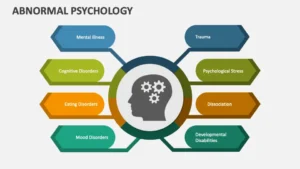Greetings, Aspiring Psychology Enthusiasts!
Have you ever found yourself overwhelmed in the vast forest of options while hunting for that ideal research topic? It’s a common struggle, much like navigating through a complex maze without a clear guide. The challenge of selecting from 120 psychology research paper topics can leave you feeling a bit disoriented. But worry not, for we’re here to serve as your reliable compass through this academic wilderness! Together, let’s unravel the mystery and find the perfect topic that not only captivates your interest but also contributes meaningfully to the ever-expanding field of psychology.
Think of a research paper as your treasure map in this academic adventure. It’s like a cool detective story about understanding how our brains tick. A research paper isn’t just words on a page; it’s your chance to dig deep into why people think and act the way they do. So, buckle up for a journey into the fascinating world of psychology. We’ll help you find the perfect topic that not only sparks your interest but also adds something awesome to the big book of psychological knowledge. Get ready to unlock the secrets of the mind!
Choosing the Perfect Psychology Research Paper Topic

Selecting the appropriate psychology research paper topic is a pivotal milestone in your academic journey. It’s vital to identify a subject that not only captivates your interest but also adds value to the expansive realm of psychology. Here’s a comprehensive guide, step by step, to assist you in this process and ensure your Australian assignment help in psychology research topics results in a compelling and insightful exploration of the subject matter.
- Identify Your Interests:
Start by reflecting on your personal interests within the field of psychology. What aspects of human behavior, cognition, or emotion fascinate you the most? Your genuine curiosity will fuel your motivation throughout the research process. - Explore Current Trends:
Stay updated on the latest developments and trends in psychology. Consider topics that align with current debates, emerging theories, or societal issues. This ensures that your research remains relevant and contributes to the ongoing discourse in the field. - Review Class Material:
Look back at your class notes, textbooks, and lectures. Is there a particular concept or theory that stood out to you? Building on class material can deepen your understanding and provide a solid foundation for your research. - Consider Practical Applications:
Think about how your research can have real-world implications. Can your findings contribute to solving practical problems or addressing societal issues? Research with tangible applications adds value and relevance to your work. - Consult with Professors and Peers:
Seek guidance from your professors or peers. They can offer valuable insights, suggest potential topics, or help you refine your ideas. Don’t hesitate to tap into the collective knowledge and experience around you.
Exploring the Depths of Psychology Topics
-
The Psychology of Decision-Making:
- The Role of Emotional Intelligence in Decision-Making
- Cognitive Biases and their Impact on Decision Processes
- Decision-Making Under Stress: A Neuroscientific Exploration
- Cross-Cultural Differences in Decision-Making Styles
- The Influence of Social Media on Decision Patterns
- Intuition vs. Rationality: Unravelling Decision-Making Strategies
- Decision-Making in Adolescents: Cognitive Development Perspectives
- Gender Disparities in Decision-Making Strategies
- The Psychological Impact of Information Overload on Decisions
- Decision Fatigue: Understanding Mental Exhaustion in Choices
- Ethical Dilemmas and Decision-Making Processes
- The Neurological Correlates of Risky Decision-Making
- Decision-Making in Complex Environments: A Systems Approach
- Behavioral Economics: Insights into Irrational Decision-Making
- Cultural Influences on Risk Perception in Decision-Making
-
Abnormal Psychology:

- The Impact of Stigma on Seeking Treatment for Mental Disorders
- Exploring the Relationship Between Trauma and Dissociative Disorders
- Cultural Influences on the Perception of Abnormal Behavior
- The Intersection of Genetics and Environmental Factors in Psychopathology
- Psychosocial Factors in the Development of Eating Disorders
- Understanding the Neurobiological Basis of Schizophrenia
- Childhood Adversity and Its Influence on Adult Mental Health
- The Role of Personality Disorders in Abnormal Psychology
- Mood Disorders: From Depression to Bipolar Disorder
- Anxiety Disorders: Unraveling the Complexities and Treatments
- Substance Use Disorders: Causes, Effects, and Treatment Approaches
- Exploring the Connection Between Sleep Disorders and Mental Health
- Obsessive-Compulsive Disorder (OCD): Causes and Therapeutic Strategies
- Personality Disorders Across Different Cultures
- The Impact of Technology on the Rise of Behavioral Addictions
-
Social Psychology:
- The Influence of Social Media on Social Perception
- Group Dynamics: Conformity and Deviance
- Prejudice and Discrimination: Understanding Roots and Solutions
- Social Factors Shaping Personality Development
- Social Identity Theory: Applications and Implications
- The Impact of Social Support on Mental Health
- Online Communication: Building and Breaking Relationships
- Cross-Cultural Perspectives on Social Behavior
- Social Influence in Decision-Making Processes
- Altruism and Prosocial Behavior: Motivations Unveiled
- The Psychology of Leadership Styles
- Social Isolation: Consequences on Psychological Well-being
- The Role of Social Cognition in Interpersonal Relationships
- Attitudes and Attitude Change: Insights from Social Psychology
- Intergroup Relations: Examining Conflict and Cooperation
[Also read: How to Write a Research Paper]
-
Cognitive Psychology:
- Memory Recall and Forgetting: Mechanisms and Implications
- The Impact of Technology on Cognitive Processes
- Language Acquisition: Nature vs. Nurture
- Neural Basis of Attention and Concentration
- The Role of Sleep in Cognitive Functioning
- Cognitive Development Across the Lifespan
- Creativity: Processes and Cognitive Mechanisms
- Metacognition: Understanding Thinking about Thinking
- Cognitive Biases in Problem-Solving
- Perception’s Role in Cognitive Processing
- Learning Styles: Psychological Perspectives
- Cognitive Psychology in Education: Applications and Implications
- Decision-Making and Information Processing
- The Cognitive Neuroscience of Human Intelligence
- Mental Imagery and its Cognitive Functions
-
Developmental Psychology:

- Parenting Styles and Their Impact on Child Development
- Early Attachment and Its Long-term Effects on Relationships
- Peer Relationships: Shaping Adolescent Development
- Cognitive and Emotional Development in Infancy
- Identity Formation in Emerging Adulthood
- Cross-Cultural Perspectives on Developmental Milestones
- Environmental Factors in Child Development
- Impact of Technology on Children’s Cognitive and Social Development
- Socioeconomic Factors and Developmental Outcomes
- Theories of Moral Development in Children
- The Impact of Divorce on Child Development
- Cognitive and Emotional Changes in Late Adulthood
- Language Development Across the Lifespan
- Gender Identity Development: Social and Biological Influences
- Impact of Early Childhood Education on Cognitive Development
-
Biological Psychology:
- Neurobiology of Addiction: Understanding Mechanisms
- Genetic Factors in Mental Health Disorders
- Brain Plasticity: Adaptation in a Changing Environment
- Hormones and Behavior: Exploring the Connection
- Evolutionary Psychology and Human Behavior
- Neurotransmitters: Regulating Mood and Behavior
- Brain Imaging Techniques in Psychological Research
- Neurological Correlates of Personality Traits
- Psychophysiological Responses to Stress
- Anxiety Disorders: A Neurobiological Perspective
- Nutrition’s Impact on Cognitive Functioning
- Sleep and Dreaming: Insights from Neurobiology
- Impact of Exercise on Brain Health and Cognitive Function
- The Endocrine System: Hormonal Influences on Behavior
- Neural Mechanisms of Learning and Memory
-
Positive Psychology:

- Science of Happiness: Factors and Measurement
- Building Resilience in the Face of Adversity
- Mindfulness and Its Transformative Effects
- Flow State: Nurturing Optimal Human Experience
- Pursuit of Meaning and Purpose in Life
- Positive Psychology Interventions for Mental Health
- Strengths-Based Approaches to Personal Growth
- Relationship Between Positive Emotions and Health
- Gratitude’s Impact on Mental Well-being
- Positive Psychology Applications in Education
- Emotional Intelligence: A Catalyst for Positive Outcomes
- Building Psychological Resilience in Children: A Positive Approach
- Happiness at Work: Enhancing Employee Well-being
- The Impact of Positive Relationships on Mental Health
- Positive Aging: Thriving in Later Life
-
Health Psychology:
- Stress and Its Multifaceted Impact on Physical Health
- Psychosomatic Disorders: Navigating the Mind-Body Connection
- Behavioral Interventions for Chronic Illness Management
- Exercise and Its Impact on Mental Health
- Health Behavior Change: Motivation and Implementation
- Social Determinants of Health: Psychological Perspectives
- Psychological Factors in Coping with Chronic Pain
- Mind-Body Interventions in Healthcare
- Sleep Hygiene: A Crucial Component of Overall Health
- Eating Disorders: Psychological Components and Interventions
- Impact of Social Support on Health Outcomes
- The Psychology of Pain Perception: Unraveling Complexities
- Health Promotion and Disease Prevention: A Psychological Approach
- Coping with Terminal Illness: Psychological and Emotional Dimensions
- Technology and Its Impact on Mental and Physical Well-being
Frequently Asked Questions (FAQs)
-
Q: How do I choose a psychology research paper topic?
A: Choosing a psychology research paper topic involves considering your interests, the scope of the assignment, and the current trends in psychology. Start by exploring areas you find intriguing, and then narrow down your focus based on the specific requirements of your assignment. Consider topics that are relevant to both your personal interests and the broader field of psychology.
-
Q: Can I explore controversial topics in psychology for my research paper?
A: Yes, you can explore controversial topics in psychology, but it’s important to approach them with sensitivity and a balanced perspective. Controversial issues often spark engaging discussions, but be mindful of ethical considerations and potential biases. Ensure that your research is based on credible sources and that you present a well-rounded view of the topic, acknowledging different perspectives.
-
Q: How do I find reliable sources for my psychology research paper?
A: To find reliable sources, use academic databases such as PubMed, PsycINFO, and Google Scholar. Peer-reviewed journals, books written by experts in the field, and reputable websites of psychological associations are excellent sources. Be critical of your sources and prioritize recent research. Always check the credentials of the authors and the publication outlets to ensure credibility.
-
Q: Is it better to focus on a specific branch of psychology or cover a broader topic?
A: The choice between a specific branch or a broader topic depends on the scope of your assignment and your personal preferences. Some research papers benefit from a focused exploration of a specific subfield, while others may require a broader overview. Consider the depth and breadth required by your assignment, and choose a focus that allows you to provide meaningful insights and analysis.
-
Q: How do I structure my psychology research paper?
A: A typical structure for a psychology research paper includes an introduction, literature review, methodology, results, discussion, and conclusion. Start with a compelling introduction that outlines the research question and its significance. The literature review should provide context and background. Clearly detail your research methodology, present your results objectively, discuss their implications, and conclude by summarising key findings. Follow any specific guidelines provided by your instructor or the journal you’re submitting to.
Conclusion:
These 120 psychology research paper topics serve as a springboard for your exploration into the diverse and dynamic field of psychology. Whether you are intrigued by the intricacies of the human mind, fascinated by social interactions, or passionate about understanding developmental processes, this compilation offers a plethora of options to spark your academic curiosity.
For those seeking assistance in bringing these topics to life, our dedicated assignment help Australia service stands ready to support your academic journey. Our team of experts is committed to providing top-notch guidance and assistance, ensuring your assignments reflect the excellence and precision required in the world of academia. Choose a topic that resonates with your interests and embark on a journey of discovery that not only enhances your understanding of psychology but also contributes to the ever-evolving landscape of psychological research. Happy exploring!


